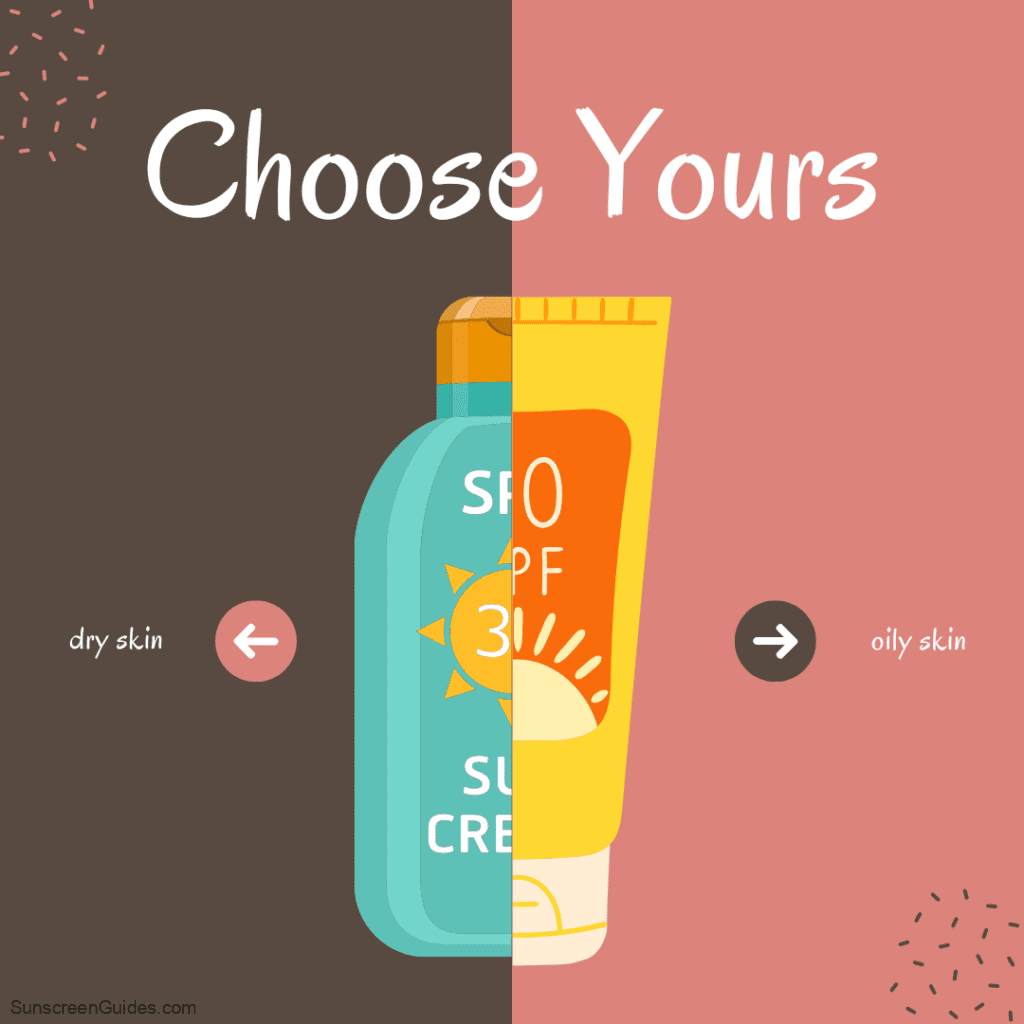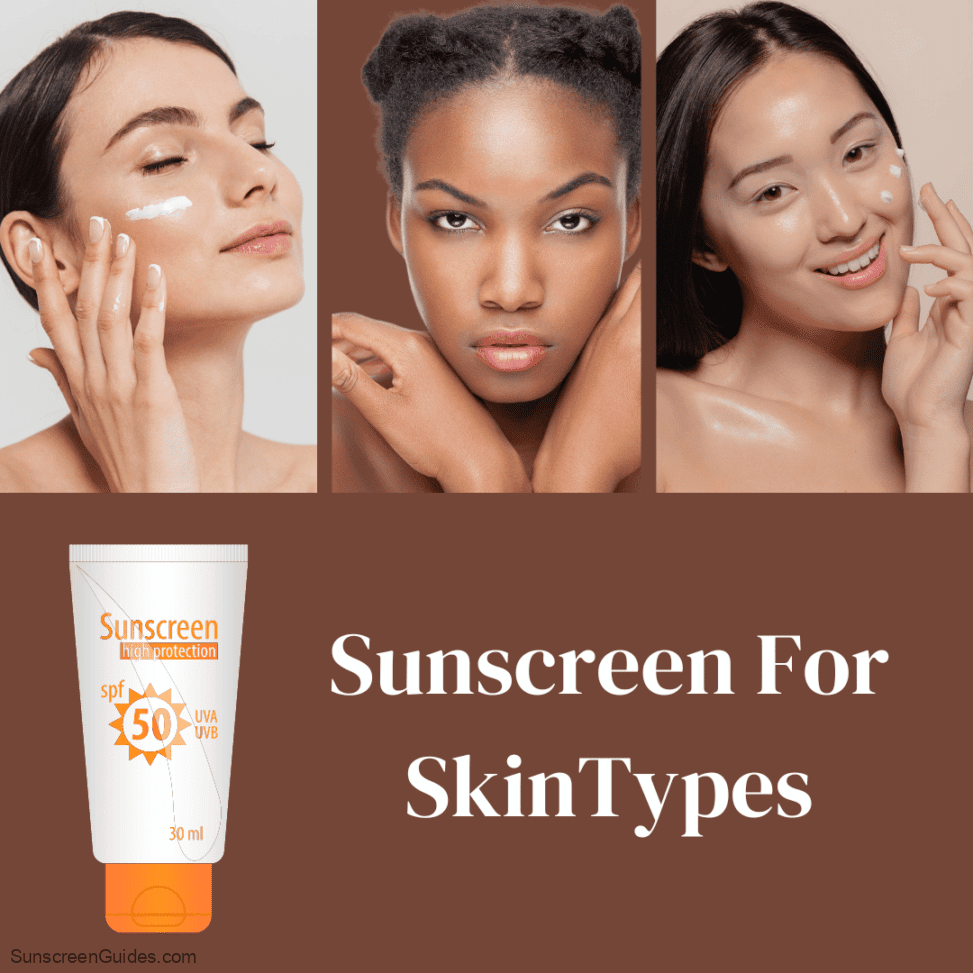The sunny days are upon us, beckoning us to bask in their warm embrace. But before you step out into the sun, it’s crucial to arm yourself with the ultimate weapon of defense: sunscreen. However, with a myriad of options available, how do you choose the perfect sunscreen for your unique skin type? Fear not, for we are here to guide you through the sunscreen maze. Get ready to navigate the world of sun protection as we unveil the secrets to finding the ideal sunscreen for your specific skin needs.
Table of Contents
Understanding Your Skin Type
Before we embark on our quest for the perfect sunscreen match, let’s acquaint ourselves with the different skin types. Identifying your skin type is the crucial first step in selecting the most suitable sunscreen for your needs. Each skin type has its unique characteristics and requires specific attention when it comes to sun protection.
Normal Skin
For those blessed with normal skin, you fall into the lucky category of balanced skin. Neither too oily nor too dry, normal skin tends to have a smooth texture, minimal imperfections, and well-maintained hydration levels. Sunscreen selection for normal skin can focus on finding a formula that provides broad-spectrum protection while offering a pleasant texture that suits your preferences.
Dry Skin
Dry skin, on the other hand, craves hydration and often feels tight and rough. It may be prone to flakiness, especially in dry climates. Sunscreens tailored for dry skin types should prioritize rich, moisturizing formulations that provide intense hydration and nourishment, helping to replenish and restore the skin’s moisture barrier while safeguarding it from the sun’s harmful rays.
Oily Skin
Oily skin can be a bit more challenging to manage, as it tends to produce excess sebum, leading to a shiny, greasy appearance. The ideal sunscreen for oily skin should be lightweight, non-greasy, and oil-free. Look for oil-absorbing or mattifying properties to help control shine, and consider non-comedogenic options to prevent clogged pores and breakouts.
Combination Skin
Combination skin presents a blend of different skin types, with areas that may be oily, typically in the T-zone (forehead, nose, and chin), and areas that may be normal or dry. It requires a balanced approach when selecting a sunscreen. Opt for formulas that address both oily and dry areas, providing adequate hydration without exacerbating oiliness.
Sensitive Skin
Sensitive skin deserves extra care and attention. It tends to react easily to various ingredients and environmental factors, including sun exposure. Look for sunscreens specifically formulated for sensitive skin, focusing on gentle, fragrance-free, and hypoallergenic options. Mineral-based sunscreens with zinc oxide or titanium dioxide are often well-tolerated by sensitive skin.
Understanding your skin type sets the stage for finding the ideal sunscreen that caters to your specific needs. Remember, everyone’s skin is unique, and what works for one person may not work for another. With this knowledge in hand, we can now embark on the journey of finding the perfect sunscreen that will keep your skin protected, healthy, and glowing under the sun’s warm embrace.
Sunscreen Selection Criteria
When it comes to choosing the right sunscreen, several key criteria come into play to ensure optimal sun protection. Understanding these factors will empower you to make an informed decision and find the sunscreen that suits your specific needs. Let’s explore the essential criteria to consider when selecting your sun protection companion.
Broad-Spectrum Protection
First and foremost, look for a sunscreen that offers broad-spectrum protection. This means it shields your skin from both UVA and UVB rays. UVA rays penetrate deep into the skin, contributing to premature aging and long-term damage, while UVB rays primarily cause sunburn. Opting for a broad-spectrum sunscreen ensures comprehensive protection against both types of harmful radiation.
Sun Protection Factor (SPF)
The Sun Protection Factor, commonly known as SPF, is a crucial element in sunscreen selection. SPF indicates the level of protection against UVB rays. Higher SPF values provide greater protection, but it’s important to note that no sunscreen can block 100% of UV rays. It’s recommended to choose a sunscreen with an SPF of 30 or higher to ensure adequate protection for daily use.
Texture and Formulation
Texture and formulation play a vital role in the sunscreen experience. Sunscreens come in various forms, including lotions, creams, gels, sprays, and even powders. Consider your personal preferences and skin type when selecting a sunscreen texture. Lighter textures like gels or sprays are often preferred for oily skin, while creams and lotions may provide more hydration for dry skin.
Non-Comedogenic Formulas
For those concerned about clogged pores or acne-prone skin, non-comedogenic formulas are the way to go. Non-comedogenic sunscreens are specifically designed not to block or clog pores, reducing the likelihood of breakouts. They allow your skin to breathe while still providing effective sun protection.
Additional Features (Waterproof, Sweat-Resistant, etc.)
Additionally, take note of any additional features or claims that may align with your lifestyle and activities. If you’re planning to spend time in the water or engage in sports activities, consider water-resistant or sweat-resistant sunscreens that offer prolonged protection even during physical exertion. Keep in mind that reapplication is still necessary, especially after swimming or excessive sweating.
By considering these selection criteria—broad-spectrum protection, SPF level, texture and formulation, non-comedogenic properties, and additional features—you can narrow down the options and find the perfect sunscreen that meets your specific needs. Armed with this knowledge, you’re ready to embark on the quest for your ideal sun protection companion, ensuring your skin stays shielded from the sun’s harmful rays while enjoying the great outdoors.
Choosing Sunscreen for Your Skin Type

Now that we’ve familiarized ourselves with different skin types and the essential criteria for sunscreen selection, it’s time to dive deeper into finding the perfect sunscreen tailored to your specific skin type. Each skin type has unique characteristics and requirements when it comes to sun protection. Let’s explore the best sunscreen choices for different skin types:
- Sunscreen for Normal Skin: For those lucky individuals with normal skin, the options are vast. You can opt for lightweight, non-greasy formulas that absorb easily into the skin without leaving a residue. Look for sunscreens with a broad-spectrum SPF of 30 or higher and consider ones with added antioxidants to enhance your skin’s natural defense against free radicals.
- Sunscreen for Dry Skin: If your skin tends to be dry, prioritize sunscreens with rich, moisturizing formulations. Look for ingredients like hyaluronic acid, glycerin, or ceramides, which help hydrate and nourish your skin. Cream or lotion-based sunscreens with a slightly thicker consistency can provide the much-needed moisture your skin craves.
- Sunscreen for Oily Skin: When it comes to oily skin, oil-free and lightweight sunscreens are the go-to choice. Look for products labeled as non-comedogenic to prevent clogged pores and potential breakouts. Gel or fluid-based sunscreens are often a good fit for oily skin, as they offer a matte finish and absorb excess oil without leaving a greasy residue.
- Sunscreen for Combination Skin: Combination skin requires a delicate balance, catering to both oily and dry areas. Consider using two different types of sunscreen or opt for a lightweight, non-greasy formula that won’t exacerbate oiliness. Look for sunscreens labeled as suitable for combination skin, providing hydration without clogging pores.
- Sunscreen for Sensitive Skin: For those with sensitive skin, choose sunscreens specifically formulated for sensitive skin types. Look for gentle, fragrance-free, and hypoallergenic options to minimize the risk of irritation or allergic reactions. Mineral-based sunscreens with zinc oxide or titanium dioxide are often well-tolerated and provide gentle, physical sun protection.
Remember, regardless of your skin type, selecting a broad-spectrum sunscreen with an appropriate SPF is crucial. Additionally, consider your personal preferences, such as texture, consistency, and added features like water resistance or sweat resistance, to find a sunscreen that suits your lifestyle and activities.
By choosing a sunscreen specifically tailored to your skin type, you ensure optimal sun protection while addressing the unique needs of your skin. With the right sunscreen in your arsenal, you can confidently embrace the outdoors, knowing that your skin is shielded and cared for under the sun’s rays.
Conclusion: Your Skin, Your Sunscreen
Congratulations! You’ve embarked on a journey through the world of sunscreens, exploring different skin types, selection criteria, and finding the perfect sunscreen match. Now, armed with knowledge and awareness, it’s time to embrace the mantra: “Your Skin, Your Sunscreen.”
Remember, everyone’s skin is unique, and what works for one person may not work for another. It’s essential to listen to your skin’s needs and adapt your sunscreen choices accordingly. Pay attention to how your skin responds to different formulations, textures, and ingredients. If you notice any signs of irritation or discomfort, consider trying alternative options until you find the perfect fit.
In addition to sunscreen, don’t forget to practice other sun protection measures. Seeking shade, wearing protective clothing, and using accessories like hats and sunglasses all contribute to a comprehensive approach to sun safety. Embrace these habits as part of your daily routine and make sun protection a priority.
Lastly, stay informed and up-to-date with the latest advancements in sun protection and skincare. As science and research continue to progress, new innovations and breakthroughs may shape the future of sunscreen. Keep an eye on trusted sources, stay curious, and explore the evolving world of sun protection.
So, my fellow sun-loving adventurers, as you step out into the radiant world, remember that your skin deserves the utmost care and protection. With the right sunscreen in hand, tailored to your skin type and preferences, you can enjoy the sun’s warmth while shielding yourself from its potential harm. Embrace your journey to healthier, happier skin, and may your sunscreen always be your trusted companion under the sun’s embrace.
Farewell for now, and may your days be filled with sunny adventures and glowing, well-protected skin!
Notes:
You can read this boston university guide too: https://www.bu.edu/articles/2021/how-to-choose-face-sunscreen-dermatologist-tips/
Also you can check our sunscreen guide
